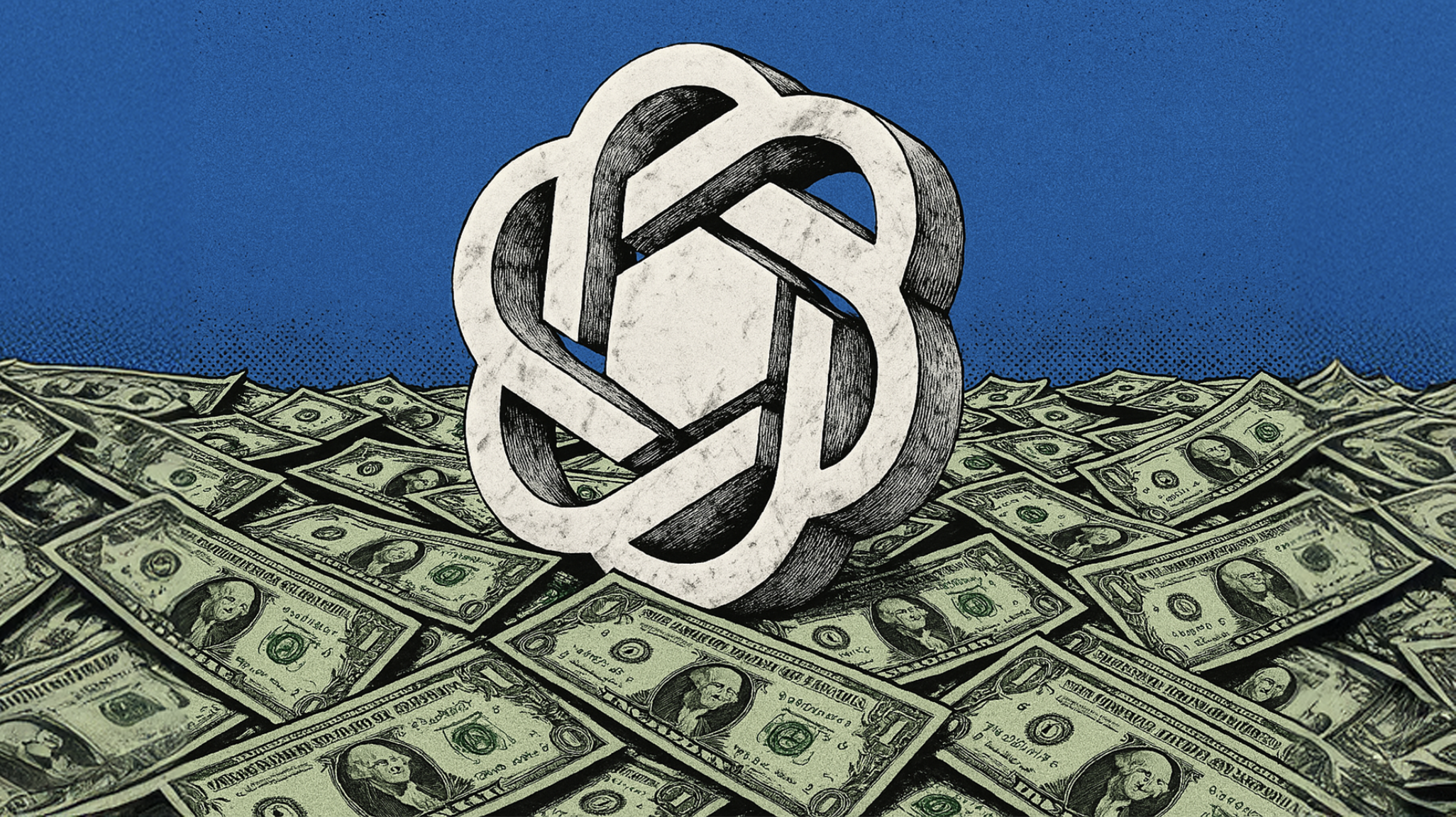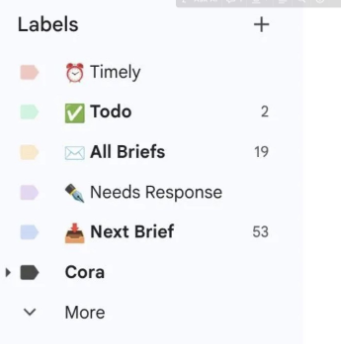
Hello, and happy Sunday! Was this newsletter forwarded to you? Sign up to get it in your inbox.
Release notes
OpenAI's $40 billion bet shows that AI is just getting started
- The biggest private tech deal ever underscores how far AI still has to go. Read why OpenAI is a once-in-a-lifetime startup.
- OpenAI is also releasing an open-source language model in the coming months—its first since GPT-2, six years ago—and wants your feedback.
Most Americans haven't even tried AI yet
- Sixty-six percent of U.S. adults have never tried ChatGPT, according to Pew Research. If you're reading this, congrats—you're an early adopter.
- While experts mostly feel excitement, public sentiment leans toward concern. With AI’s capabilities growing, bridging the knowledge gap becomes even more important.
A bleak picture of the future with AI
- Five influential AI thinkers (including Slate Star Codex’s Scott Alexander) captured the minds of readers this week with AI 2027, dramatic predictions of the possible end of times brought upon us by AI (in the form of a blog post-as-website—an emerging medium).
- It’s critical that we thoughtfully envision the future, especially now, as we’re wielding the most powerful tool we’ve ever made. Here the authors leap from “There are cures for most diseases, an end to poverty, unprecedented global stability, and the Dow Jones just passed 1 million” directly to “Most [humans] are dead within hours.” That’s extreme and, in my view, unlikely—more nuanced and probable scenarios exist.
Ask AI either for the answers or for help finding them yourself
- Claude partnered with Northeastern University (my alma mater), offering 50,000 students and faculty AI that includes a “learning mode” prompting critical thought instead of providing easy answers.
- OpenAI made ChatGPT+ free for college students just in time for finals and launched OpenAI Academy to help teach the basics.
- Google shared three ways in which NotebookLM can help with studying, highlighting two of my favorite new features: turning any topic into a mind map and suggesting sources.
Benchmarks define our future
Benchmarks aren't just measurements; they're self-fulfilling prophecies, our steering wheel or rudder for AI. Here are the most important ones that came out last week:
- GPT-4.5 just passed the Turing Test, literally. AI (GPT-4.5) convinced people in a five-minute conversation that it was the human 73 percent of the time over an actual person. GPT-4.5 was significantly better at this than any other model tested, including the previous generation of GPT-4o and ELIZA, one of the first chatbots ever made (1966)—whose pattern matching was surprisingly almost as convincing as 4o’s.
- "The World’s RL Gym" breaks down the DeepSeek R1 moment, explains some of the new innovations, and highlights how DeepSeek’s reinforcement learning approach can accelerate AI's performance. Reasoning traces—or explanations of how correct answers were derived, —can be trained on to reinforce that behavior, improving performance.
- Dartmouth published state-of-the-art results about its therapy chatbot significantly reducing depression and anxiety, in part because the university measured clearly defined outcomes. I bet that AI gets significantly better as a therapist by year end. (More on this study below.)
- Meta published research on Mocha, which creates movie-quality talking head animations. Talk heads are a benchmark that's seen huge leaps since SadTalker, which was one of the best performing models in 2023.
- OpenAI created PaperBench, a benchmark that tests if AI can replicate brand-new machine learning papers. It was actually an Anthropic model, Claude 3.5 Sonnet (New), that performed the best out of those tested, succeeding in replicating experiment results about 21 percent of the time.
- Google shared its EClecKTic benchmark that highlighted AI’s emergent ability to transfer knowledge across languages. Clearly the data these models are trained on impact them in ways that are not yet fully understood, and as we learn more, reliability and performance will certainly improve.
The most transformative platform in all of science
- Arxiv is the home to pre-peer-reviewed papers across science—especially in machine learning. It is in some capacity the birthplace of the ideas upon which modern AI has been built. Wired spoke with creator Paul Ginsparg about the history and vision of the platform.
Knowledge base
"OpenAI Is a Once-in-a-lifetime Startup" by Evan Armstrong/Napkin Math: What do you call a company that's raised more private funding than any other in history, is burning through $5 billion a year, and needs a trillion-dollar outcome to break even? You call it OpenAI.It's simultaneously the world's leading AI research lab, consumer tech company, and B2B SaaS provider—a unicorn that's actually three unicorns in a trench coat. Read this for a sobering look at the unprecedented scale of OpenAI's ambition, why its $40 billion funding round comes with strings attached, and why despite all its success, this company will either change the world forever or spectacularly implode.
"Freeform Update: Why Vibe Surveys Beat Static Forms" by Cassius Kiani/Source Code: We've all felt that soul-crushing dread when confronted with yet another endless scroll of checkboxes and dropdown menus. Enter Freeform, a new “vibe form” that uses AI to adapt questions based on responses, creating an experience that feels more like a conversation than a tax return. Read this if you want to see how AI can transform one of the internet's most hated experiences into something actually enjoyable. ✍Every subscribers get free access to try it.
"How a Google Docs Aficionado Embraced AI" by Scott Nover/Superorganizers: Eric Jorgenson, the CEO of the book publishing company Scribe Media, has evolved from having an obsession with Google Docs to embracing AI as an “incredible sounding board.” He keeps an AI voice chat open while working, using it to check team goals, prepare for board meetings, and generate endless ideas. Read this if you want to see how a productivity expert integrates AI into his workflow while recognizing its limitations—namely, its lack of taste.
🎧 "Being Human in the Age of Intelligent Machines" by Rhea Purohit/Chain of Thought: MIT professor Alan Lightman—a physicist, novelist, and academic—joins Dan Shipper to explore the existential question, what makes us human? They dive into whether understanding the science behind a sunset makes it less beautiful (spoiler alert: it doesn't), the mystery of consciousness, and our potential evolution from homo sapien to “homo techno” with internet-connected brains .🎧 🖥 Listen on Spotify or Apple Podcasts, or watch on X or YouTube.
"The Mantra of This AI Age: Don't Repeat Yourself" by Dan Shipper/Chain of Thought: AI isn't going to destroy humanity or replace you at work—at least not yet. What it will do is handle all those mind-numbing repetitive tasks you hate. Read this to understand how AI is ushering in an “allocation economy” where your value comes from deciding what matters, not from doing the same tasks repeatedly.
From Every Studio
Conversations are content. You’re just not capturing them—yet
On Wednesday, April 9, Spiral general manager Danny Aziz is teaching a free workshop on using Spiral to transform your everyday interactions—like meetings and Slack conversations—into content. Here's what you'll learn:
- Your best content is hiding in plain sight: Meetings, messages, and casual talks are treasure troves of content to build your business or personal brand
- One idea, infinite lives: How to repurpose a single insight across platforms, formats, and audiences
- Work smarter, not harder: Use Spiral's tools to publish consistently—without burnout
If you’re tired of staring at a blank page and want content to come from your workflow instead of adding to it, this workshop is for you. Save your spot.
New feature on the block: Action Gmail labels in Cora
Our email management tool Cora just got a little more transparent. You’ll now see dynamic Gmail labels that update in real time, showing you which emails are being turned into to-do items, summarized into briefs, or flagged for follow-up—so you always know what’s happening, and what needs your attention. Sign up for the Cora waitlist.
Sparkle v2: Upgraded interface, file clarity, and dad-approved
Early users of Sparkle’s v2 (launching April 15) are digging its new cleaner interface, the visibility into how it reorganizes files, and its dark mode. Our favorite piece of feedback so far: A friend visited home and found Sparkle... on his dad’s MacBook. Want early access? Say hi at sparkle@every.to.—Vivian Meng
Alignment
Therapy goes viral. In a recent Dartmouth study, Therabot—an AI-powered therapy chatbot—reduced depression symptoms by 51 percent and anxiety by 31 percent in just four weeks. If early-stage AI can deliver results typically reserved for gold-standard cognitive behavioral therapy, we’ve quietly democratized access to effective mental health care: Suddenly, high-quality emotional support is within reach for anyone with a smartphone. The downstream effect might (emphasis on “might”) be an explosion in emotional intelligence: millions of people finally equipped to navigate their inner landscapes.
Ironically, at precisely the moment emotional insight becomes universally accessible, our traditional cognitive skills—reading comprehension, analytical reasoning, and problem-solving—are declining. The Financial Times recently reported that literacy proficiency has sharply deteriorated in 11 out of 31 countries surveyed, even among university graduates.
Technology, in other words, could be pulling us in two different directions at once—cognitive decline on one screen, emotional enlightenment on another. It reads like a cosmic joke, but maybe our new-found emotional fluency will become culture’s new currency. Maybe we will only succeed in building a better future if we are in touch with our own—and others’—complex inner selves. And AI will help make it happen.—Ashwin Sharma
Alex Duffy is the consulting lead and a staff writer at Every, where he writes about empowering people with AI tools and technology. You can follow him on X at @theheroshep and on LinkedIn, and Every on X at @every and on LinkedIn.
We build AI tools for readers like you. Automate repeat writing with Spiral. Organize files automatically with Sparkle. Write something great with Lex. Deliver yourself from email with Cora.
We also do AI training, adoption, and innovation for companies. Work with us to bring AI into your organization.
Get paid for sharing Every with your friends. Join our referral program.
The Only Subscription
You Need to
Stay at the
Edge of AI
The essential toolkit for those shaping the future
"This might be the best value you
can get from an AI subscription."
- Jay S.
Join 100,000+ leaders, builders, and innovators

Email address
Already have an account? Sign in
What is included in a subscription?
Daily insights from AI pioneers + early access to powerful AI tools







.05.38_PM.png)

.png)
Comments
Don't have an account? Sign up!
Great review. I am also seeing the same types of numbers when I give speeches to business people about AI - there are still many that have not really tried it. I spoke to a group of college students last week at their entrepreneur club and was amazed that nearly 25% have not done anything with AI! After my speech, they are now jumping in. 🚀